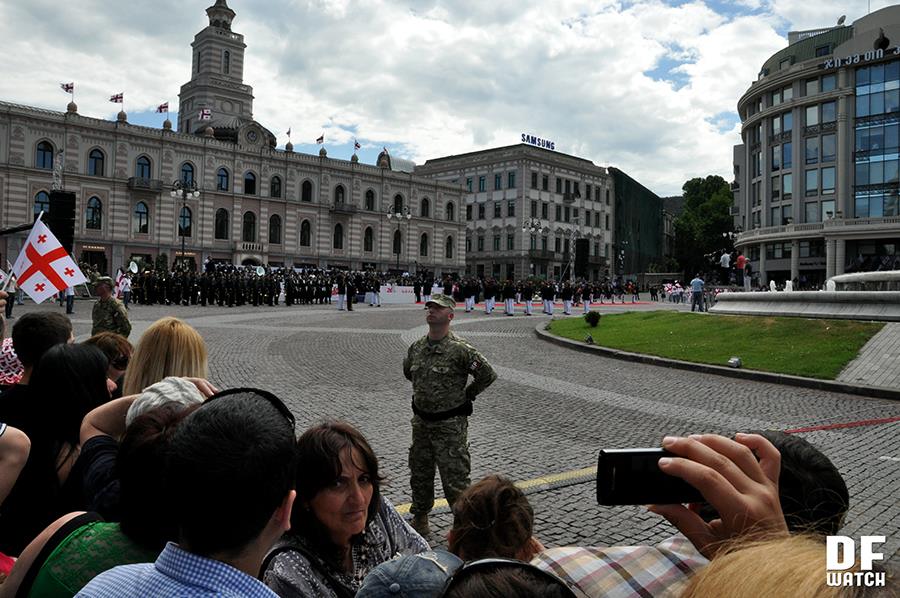
TBILISI, DFWatch–As Georgia prepares for its Independence Day celebrations, official guests will be faced with a tricky question: Whose celebration to attend? The opposition’s or the government’s? Or both?
Which event foreign dignitaries choose to attend could signal their stance on Georgia’s deepening political crisis. After 235 days of protests bolstered by Western governments, the national holiday will provide an indication of the strength and endurance of that backing.
Some analysts expect Western ambassadors in Tbilisi to join the government’s official event, in keeping with protocol. On the other hand, a delegation of European Parliament members are expected to attend the opposition’s ceremony, analyst Ramaz Sakvarelidze told Rezonansi.
Should Western officials find themselves on opposing sides during social unrest it would present governments with a delicate problem. But editor of pro-opposition magazine Tabula, Tamar Chergoleishvili, shared with the newspaper that the planning has included steps to avoid confrontations. Both opposition and government plan to make use of the central parts of the capital, near the parliament building, but events are separated in time.
May 26 is the anniversary of Georgia’s declaration of independence in 1918. The government’s program begins at noon, with military oath ceremonies for new conscripts held across six historical sites, including Freedom Square in Tbilisi. Cultural events organized by the Ministry of Culture will take place in the area around Atoneli Street, close to the parliament. At 17:00, the national anthem will be played during a ceremonial gathering at the presidential palace.
The opposition’s plans incluyde a large-scale celebration in downtown Tbilisi. Beginning at 15:00, six separate marches will converge on Rustaveli Avenue, organized by students, NGO workers and artists. The event will culminate at 19:00 with a speech by self-declared President Salome Zourabichvili outside the National Youth Palace, the site of the actual declaration of independence in 1918.
The ongoing opposition campaign to demand new elections began shortly after the parliamentary elections last November, and has received symbolic backing from many Western governments. In recent months, tensions between the Georgian Dream government and Western diplomats have intensified. It is unclear whether embassies have been invited and whether they will plan to attend the official celebrations, which have traditionally showcased the country’s military capacity.

